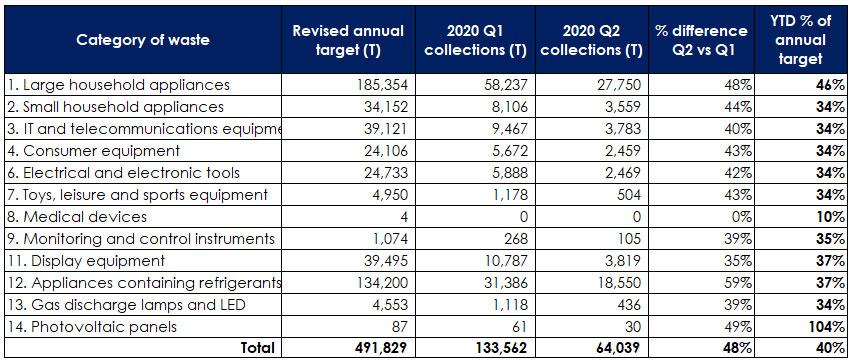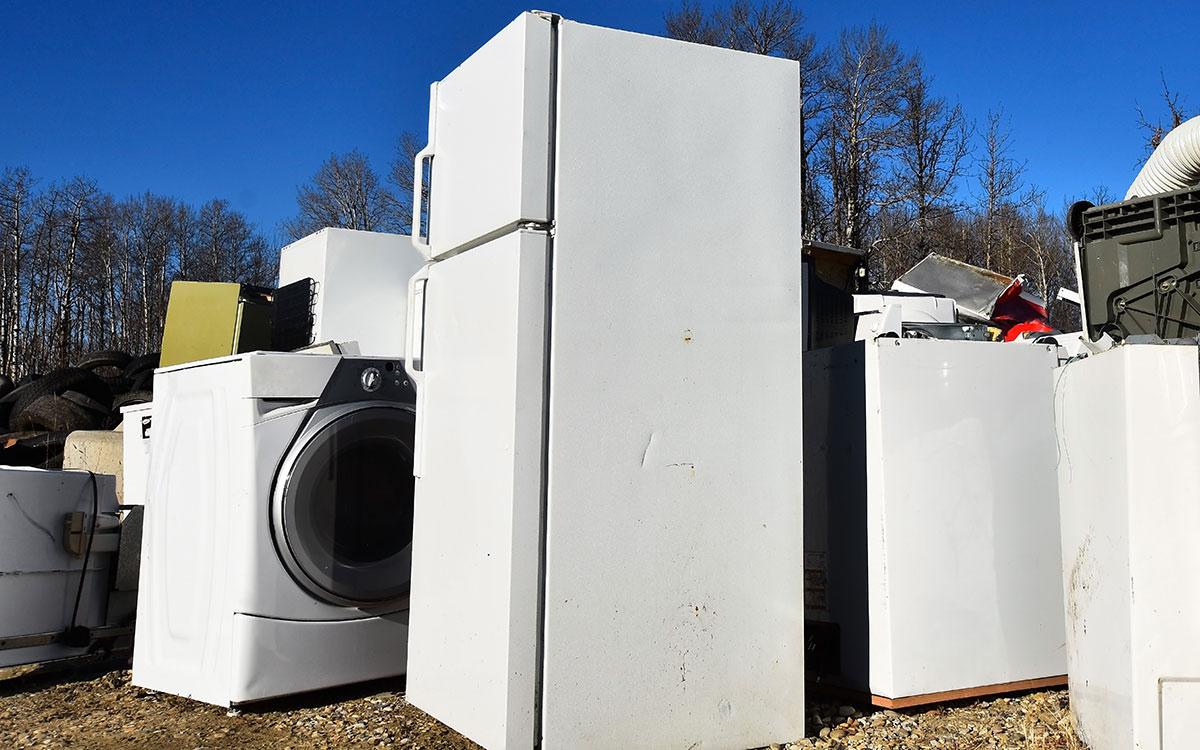The Q1 results for 2020 showed great promise earlier in the year, however, as anticipated, the provisional figures for Q2 indicate that WEEE collections are down dramatically due to the COVID-19 crisis.
With council run waste recycling sites and many reprocessors closed during lock-down, the Q2 collection total is less than half the amount achieved in Q1. Although the data is yet to be validated by the Environment Agency, it still gives a good indication of the results.

In March this year the annual targets were revised down in anticipation of the COVID-19 impact, yet at the halfway point in the year we have only achieved the 40% mark, with many categories at only just above one third of the annual target. One positive result that stands alone is for Category 14, Photovoltaic panels, which has already exceeded the annual target.
What does such a shortfall mean for compliance schemes, who are required to procure enough recycling evidence to cover their member obligations? Luckily the safety valve of the compliance fee exists, enabling schemes to access an alternative method of compliance if they are unable to secure enough recycling evidence.
Managed by Material Focus, the funds generated by the compliance fee have recently helped launch the ‘Recycle your electricals’ campaign and the funding initiative for reprocessors and charities hit hard by COVID-19.
Extraordinary circumstances
Robbie Staniforth, head of policy at B2B Compliance said “It comes as no surprise that Q2 results are below par, given the extraordinary circumstances. The only good news appears to be the collection figures for photovoltaic panels, which may have increased as a result of home improvements during the lockdown period.”
“However, the overall poor performance could have a silver lining, namely that fewer electrical goods may have been discarded by citizens. In a circular economy, things should last. If there has not been an increase in fly-tipping or discarding of electricals in unrecyclable waste destined for incineration or landfill in Q2, we should reframe these statistics as an achievement.
This will be scant consolation for producers who will, nevertheless, be expected to fund equivalent recycling via the compliance fee. It will be interesting to see how Defra frame the magnitude of fees payable. There is likely to be widespread use of the fee due to such extraordinarily poor performance.”
“It will certainly be interesting to see if the methodology chosen by government contains the usual big scheme bias of recent years that sees dominant market players pay far less per tonne than their competitors.”


